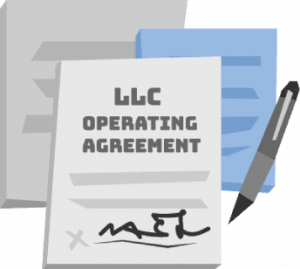How to Start an LLC in Hawaii
To start an LLC in Hawaii, you’ll need to focus on three key steps: name your business, choose a Hawaii registered agent, and file the required formation paperwork with the Hawaii Department of Commerce and Consumer Affairs, plus a $51 filing fee. Those are the basics, but to remain in good standing and ensure your LLC’s legal bases are covered, you’ll need to do a few more things.
Below, we’ll take you through what’s needed to start your LLC and keep it running well.

1. Name Your Hawaii LLC
First up, you need to find a name for your LLC. Hawaii’s complete naming guidelines are in HI Revised Stat. § 428-105. But in general, your LLC name must:
- Contain the words Limited Liability Company or one of two abbreviations: LLC or L.L.C.
- Not already be in use by another Hawaii business
Already got a name in mind? You can check to see if it’s available. If you aren’t prepared to form an LLC just yet, the state lets you reserve your business name for up to 120 days.
DBA stands for Doing Business As, and in Hawaii, DBAs are referred to as trade names. If you want to do business under a name other the company name that appears on your Articles of Organization (even if it’s just to drop the “LLC” from your name), you should submit an Application for Registration of a Trade Name with the Hawaii Department of Commerce and Customer Affairs. You’ll also need to pay a $50 filing fee. Or hire us to do it for you!
Create a Hawaii LLC!


2. Claim Your Domain Name
Your domain name opens up a world of options. From launching a website, building social media profiles, setting up email communications, and printing business cards, there’s a whole lot of new-business stuff you can’t do until you choose a domain name.
When you choose your business domain, consider:
-
Does your domain work well with your business name?
-
Is your domain easy to remember and spell?
-
Is your domain available wherever else you want it, like social platforms, trademarks, or business name registries?
Once you have a domain you’re happy with, it’s time to claim it. When you order your domain through Northwest, we’ll also set you up with a website, custom built by our business website experts, hosted and secured through us. You can test drive that website completely free for 90 days.

3. Designate a Registered Agent
Your Hawaii registered agent’s primary responsibility is accepting important legal mail and forwarding it to you as quickly as possible. This legal mail includes notices of lawsuits filed against your company. To be a registered agent, someone must have a physical address in Hawaii and be willing to list that address on your Articles of Organization. By law, you must appoint a registered agent in Hawaii. It’s impossible to complete the formation paperwork without having a registered agent in place.
Learn why the pros use a registered agent service.
Yes. But make sure you’re willing to list your address on the public record. You must also be willing to keep regular business hours at that address so you can accept legal mail in person.

4. Submit LLC Articles of Organization
To officially create your LLC, you must submit Hawaii Articles of Organization and pay a $51 fee. Your business cannot become an LLC without completing those two steps. Note that all of the information on your formation paperwork becomes part of the public record.
Here’s the information you must list on the Articles of Organization.
-
Company name: Include an indicator like limited liability company or LLC.
-
Business mailing address: A P.O. Box is fine if you don’t want to list a physical address.
-
Registered agent: List who will accept legal mail on behalf of your LLC.
-
Registered agent address: This must be an actual street address within the state of Hawaii.
-
Organizer: The name and address of the person who completes your Articles. This can be a member of your LLC, but it doesn’t have to be.
-
Duration: If relevant, list an end date for your LLC. But most LLCs select at will to maintain flexibility.
-
Management structure: Indicate if your LLC will be member-managed or manager-managed.
-
Member or manager info: The names and addresses of your members or managers, depending on who you decide should handle the LLC’s daily operations.
-
Liability: Liability protection is a big reason for forming an LLC in the first place, so you’ll probably want to check the shall not be liable box.
-
Signature: Make sure your LLC organizer signs here.
Hawaii charges $51 to file Articles of Organization for a LLC.
Regular filings are processed within three to five days, while expedited filings only take one day. Filing online is quicker than filing by mail.
You can file online, by mail, by fax, by e-mail, or in-person.
Online:
Hawaii Business Express
By mail:
Dept. of Commerce and Consumer Affairs
Business Registration Division
P.O. Box 40
Honolulu, Hawaii 96810
In person:
Dept. of Commerce and Consumer Affairs
Business Registration Division
335 Merchant Street, Rm. 201
Honolulu, Hawaii 96813
By email:
breg-doci-filing@dcca.hawaii.gov
By fax:
(808) 586-2733
Many new business owners are dismayed to learn that their personal address becomes public record if they use it on formation documents. To avoid that, hire a registered agent company like Northwest. We list our information on the form wherever we can, helping you keep your private information protected.
Your Articles of Organization are filed. What's Next?

Write an LLC Operating Agreement
An operating agreement is an internal document that details the nuts and bolts of how your business will be run. The operating agreement should go into extreme detail about everything from how voting works to how profits and losses are allocated. Even if you’re the only member of an LLC, you still need an operating agreement to open a bank account, among other things.
An operating agreement is not a simple thing to write. Check out our attorney-drafted Operating Agreement for guidance.
No, Hawaii law does not make operating agreements mandatory. But you should still consider an operating agreement to be an essential part of your LLC. It’s a legally binding document that covers everything about how your LLC will operate. A written operating agreement can also be helpful if your LLC ever ends up in the middle of a lawsuit.
You can customize your Hawaii operating agreement based on the needs of your company. But typically, an LLC operating agreement should address:
- initial investments
- profits, losses, and distributions
- voting rights, decision-making powers, and management
- transfer of membership interest
- dissolution

6. Get an EIN, Bank Account, & Funding
You can’t run an LLC without money, so you need a business bank account. When you open a bank account, you’re drawing a clear line between your personal accounts and your LLC. But before you can go to the bank and open your account, you’ll need to get an EIN. EIN is short for Employer Identification Number.
Once the account is active, it’s time to fund the LLC. To do this, every member should make an initial contribution equivalent to their membership interest, which is the percentage of the LLC they own.
You can get an EIN by going to the IRS website. If you don’t want to deal with the IRS, you can hire us to get an EIN for you as part of your LLC formation package.

7. File Taxes & Reports
LLCs must meet certain tax and reporting requirements. Those are listed below.
Taxes: The default tax status for an LLCs is pass-through taxation. This means profits pass through the business to the owners, who then report the profits as self-employment income on their personal tax returns. LLC profits are also subject to the federal self-employment tax rate (15.3%). An LLC can also submit a form to the IRS to be taxed as an S-Corp or C-Corp.
Annual reports: An annual report is submitted to the Department of Commerce and and Consumer Affairs. It costs $15 to submit an annual report, and the report is due at the end of the quarter in which you originally formed your LLC. So if your LLC was formed January 15, the annual report would be due by March 31. If you’re not in the mood to file it yourself, you can hire us to file your annual report for you.
Yes, annual reports are required in Hawaii. These reports exist to ensure the state has accurate contact and ownership information about your company.
By default, LLCs get taxed as pass-through entities. But if you want an alternative, you can file paperwork with the IRS to be taxed as an S-corp or C-corp.
*This is informational commentary, not advice. This information is intended strictly for informational purposes and does not constitute legal advice or a substitute for legal counsel. This information is not intended to create, nor does your receipt, viewing, or use of it constitute, an attorney-client relationship. More information is available in our Terms of Service.
Ready to Start an LLC in Hawaii?







